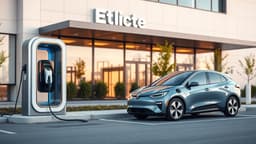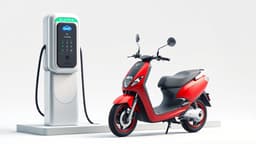Home / Business and Economy / EVs Still Cheaper Despite No Tax Credit?
EVs Still Cheaper Despite No Tax Credit?
23 Nov
Summary
- Electric vehicles are generally cheaper long-term, even without tax credits.
- Lower maintenance and fuel costs make EVs more economical over time.
- Vehicle choice depends on driving habits and charging availability.

Even with the discontinuation of the $7,500 federal EV tax credit, electric vehicles (EVs) can still present a lower total cost of ownership compared to gasoline-powered cars. Experts confirm that EVs typically emerge as the more affordable option when all expenses, including maintenance, depreciation, and fuel, are considered over the vehicle's life.
While the initial purchase price of an EV might be higher without the tax credit, this upfront disadvantage is often outweighed by significant savings in other areas. EVs boast considerably lower maintenance needs and reduced fuel costs, which can more than double for comparable gasoline vehicles, leading to substantial long-term financial benefits.
Ultimately, the decision between an EV and a gasoline car depends on personal driving patterns, how long the vehicle will be kept, and the feasibility of home charging. Hybrids offer a middle ground, providing better fuel efficiency than traditional combustion engines for those not yet ready for a full EV transition. Conducting personal cost analysis is recommended.




